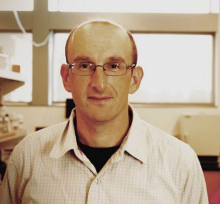Alexander Revzin
Mayo Clinic
Professor
Department of Biomedical Engineering and Physiology
Wednesday, September 18, 2019
Microsystems for Cultivation and Analysis of Cells
Abstract:
Our lab has a long-standing interest in developing microfluidic and biosensing technologies for analysis of cells and biological fluids. This presentation will focus on the use of microfluidic devices for cultivation of hepatocytes, cancer organoids and pancreatic islets. It will highlight advantageous of microfluidic cultures and will describe how microfluidic automation may enable on-chip analysis of cellular function. Applications such microfluidic cell cultures in liver injury modeling, diabetes research and personalized cancer treatment will be discussed. Another aspect of this presentation will relate to the use of microfluidic encapsulation of cells: pluripotent stem cells and hepatocytes. Some of the recent developments and results relating to differentiation of encapsulated stem cells will be discussed.
Bio-Sketch:
Alexander Revzin received B.S. degree in chemical engineering from Wayne State University and Ph.D. in chemical engineering from Texas A&M University where he worked on enzyme-based electrochemical biosensors. Subsequently, he spent two years as a postdoctoral fellow in Harvard Medical School/Massachusetts General Hospital with Mehmet Toner, developing micropatterned surfaces for cell analysis. Revzin joined Department of Biomedical Engineering at University of California, Davis in 2004 and rose to the rank of Professor. He moved to Mayo Clinic in Rochester Minnesota in October 2016.
From November 2012 until July 2014 Revzin served as a Program Director at the National Science Foundation (USA) overseeing research funding in the area of nano-biosensing. Revzin was a Chancellor Fellow at UC Davis in 2012 and was inducted as a fellow of AIMBE in 2015. The Revzin laboratory pursues research projects at the intersection of cell biology, biosensors, microfabrication and surface science.
Wednesday, September 18, 2019
- Time: 11.00 AM
- Location: 206 Furnas Hall
- Seminar Flyer

Alexander Revzin
Professor
Mayo Clinic